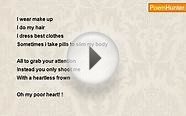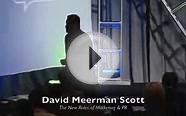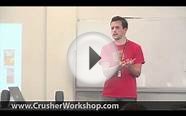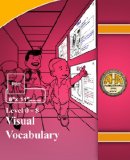For your attention
An audience shouldn't do you a favor by listening—do them a favor by explaining.
Talks at academic conferences seldom feature a high knowledge per minute ratio. Speakers often talk for themselves, unwittingly spawning facts that are not directly useful to their audience. For me, the most symptomatic aspect is the obligatory “thank you for your attention” at the end of a talk. Think about what you’re saying. Was your talk so bad that people had to do you an actual favor by paying attention? We’ve got this whole thing backwards. you are one of the people the audience paid for to see. They should be thanking you for doing a great job—provided of course, that you really do the best you can to help them understand.
Ah, perceived politeness… It wouldn’t be the first time that it stood in the way of effective communication. Even if you feel the irresistible urge to thank your audience, never thank them for their attention. Really, how could you possibly feel better if they had to do a conscious effort to stay attentive? If they had to devote any energy on focusing their attention on you, then you clearly were giving a boring talk. And sure, it is possible that you were, but why should they even bother paying attention if you didn’t bother to make your talk interesting and relevant to them?
This whole act of of fake (or sometimes even real) humility is detrimental to an effective conference ecosystem. “I’m terribly sorry that I was boring, thanks for still listening.” It provides speakers with an excuse to be boring, an excuse to not explain effectively, as the audience does the apparently “hard work” of paying attention while the speaker is messing up his or her slides.
Well, you’ll never have to thank me if your talk is hard to follow, because I will not listen. It is your duty as a speaker to minimize my effort of understanding. If you are effective, you are explaining me in 15 minutes what could possibly take me hours to study by myself. In that case, I should—and will—be the one thanking you.
You know what is more polite than thanking the audience? Making sure they get the most out of your talk. This means two things:
- Give people who pay attention what they need: a clear insight in your research.
- Ensure that people who are not interested don’t have to pay attention.
That last part might seem strange: would you want people not paying attention?
Of course—because attention was never your goal in the first place.
 If you have to thank people for their attention, you probably didn't really deserve it anyway.
If you have to thank people for their attention, you probably didn't really deserve it anyway.
You might also like



|
RAVPower All-In-One FileHub Wireless N Travel Router USB Micro SD SDXC TF Memory Card Reader Card with 6000 mAh portable charger USB Hard drive Flash Mobile Storage Media Sharing for iOS &android devices Personal Computer (RAVPower)
|
|
TaoTronics Humidifier Home Ultasonic Cool Mist (with Constant Humidity Mode, Mist Level Control, Timing Settings, Built-in Water Purifier, LED Nightlight, Zero Noise) Health and Beauty (Humidifier)
|



|
Fit Overs Sunglasses - The Element Collection Sunglasses Designed to Be Worn Over Medium, Oval or Rectangle Prescription Eyewear Not Exceeding 137mm X 43mm - Claret Frame/polarized Grey Home Improvement (Jonathan Paul Eyewear)
|
|

|
Visual Vocabulary Word Wall Posters (Verbs) Medium L4 (20 Pack) Office Product (Arts to Academics Publishing)
|

|
MXR Wylde Overdrive Effects Pedal Musical Instruments (Dunlop)
|






